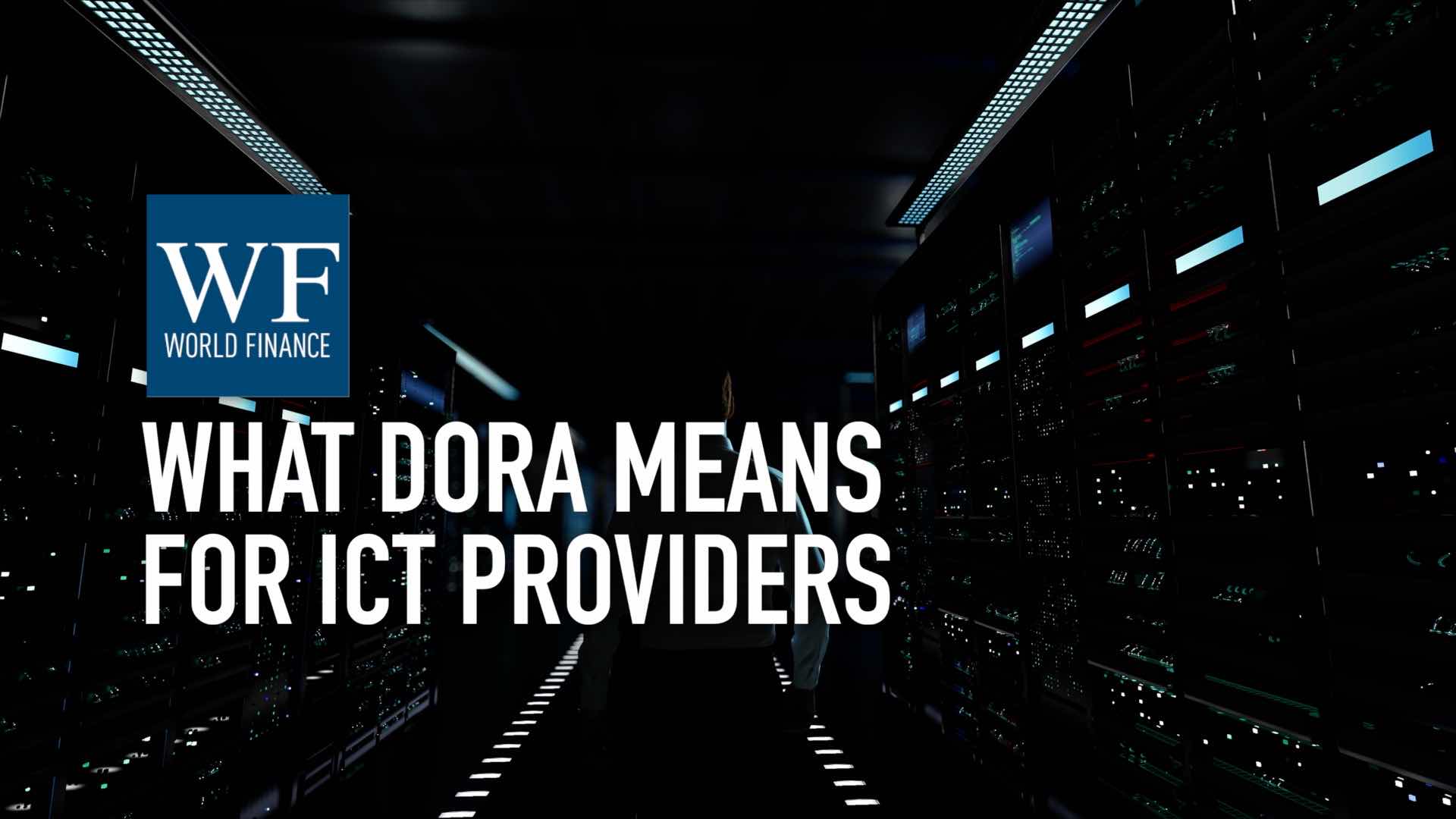Nucleus Software Exports heads banking’s technology revolution
World Finance speaks to Vishnu Dusad, CEO of Nucleus Software, to find out about digital developments in banking
Related:
Transcript
Financial services in the digital age, it’s a time when new technology in IT is changing the face of the sector and the customer experience. At the forefront of this revolution is Nucleus Software Exports, which offers software solutions to the banking and financial services industry across the globe. World Finance speaks to its CEO, Vishnu Dusad, to find out more.
World Finance: Well Mr Dusad, how important is the link between the banking sector and IT software services, and how are technologies impacting the banking industry?
Vishnu Dusad: Banks are technology companies in disguise. They are among the heaviest users of information technology today. Against 3-4 percent of the revenues that any other industry sector has, banks spend as much as 7.3 percent of the revenues on information technology.
It is through technology that banks can design and deliver some of the most customised products to their customers, and that is the reason banks are heavy users of technology.
It is through technology that banks can design and deliver some of the most customised products to their customers
World Finance: Well you are of course based in India, but you offer your services globally. So how do you adapt to the different markets, and what technology trends and needs are you seeing in the different countries?
Vishnu Dusad: Our customers are in 50 other countries, and depending upon the technological growth of the specific country, the solutions are varying.
In a country like India, where the technology infrastructure is still coming of age, you have to design solutions which would leverage whatever is available on the ground. Whereas in countries like the US and UK, and in Europe, the technology infrastructure is already a few decades old, and you need to offer solutions which would take the old technology infrastructure, and take it to the next level.
World Finance: Well how are customer demands and expectations changing?
Vishnu Dusad: When an individual approaches a bank, typically he’s expecting – today, while in the past it was different – that the bank will understand his or her needs very specifically, and design products and offer him products which will take care of his needs at a very specific level. This is one of the expectations.
There’s an expectation in terms of the under-banked. The under-banked who have never seen a bank or understood what is a bank, they are also today expecting their accounts to be opened, and services being rendered to them through mobile and through low-cost devices, through branches which are again very low-cost, and things of that nature.
They’re also expecting that, whatever has been the relationship of theirs with the bank, that is put to use while delivering the solution that they are looking for in the future. So these are some of the ways the customers are expecting banks to respond to their needs.
World Finance: Well your core areas of expertise are in lending and transactions, so what cutting edge innovations do you offer in these fields?
Vishnu Dusad: The solutions are very innovative and depending upon the local needs. For example, in Japan, our solutions offer shopping credit, so that when an individual walks into a store and he likes to buy a white good, he can swipe his card and get a loan instantaneously.
In a market like India, there is a lowering of the spectrum in terms of borrowing. You are talking about loans which are as low as £10. Our solutions are able to deliver those loans cost-effectively.
Coming to the transaction banking solutions, our solutions offer our banks collections, payments, liquidity management and financial supply chain solutions.
Banking and the financial services industry can learn from other industries very effectively
World Finance: How important are cross-industry programmes, and what are the advantages of these?
Vishnu Dusad: Banking and the financial services industry can learn from other industries very effectively. The banking and financial industry is learning from the telecom industry and moving very fast forward in terms of mobile payments.
Over the next three to five years we are visualising that a substantial part of our currency will move to mobile, and I visualise over the next ten to twenty years, currency as we know it today in the form of coins and paper will literally vanish completely from the face of the earth.
World Finance: Well finally, considering banking IT is constantly developing, what do you see to be the future challenges and trends?
Vishnu Dusad: Security is clearly the challenge, and customisation is going to be again a very substantial challenge. Because more and more customers are going to look for solutions which are very meaningful to them, which are very specific to them, and banks will have to leverage big data that they have created. The data will have to collected into a meaningful knowledge about the customer, and they will have to respond to the customer’s needs based on this knowledge that they are creating.
Speed of response is something that is going to take place. Today, if you were to apply for a mortgage, it is going to take a minimum of five weeks. The customers are going to expect that this time of five weeks reduces down to three weeks, two weeks, and one week, and if possible days. So these are some of the expectations that the banking industry will have to respond to in years to come, and it is the technology which is going to help them come up these expectations.
World Finance: Mr Dusad, thank you.
Vishnu Dusad: Thank you.

 What the Digital Operational Resilience Act means for board members and CEOs
What the Digital Operational Resilience Act means for board members and CEOs What the Digital Operational Resilience Act means for third party ICT providers
What the Digital Operational Resilience Act means for third party ICT providers
